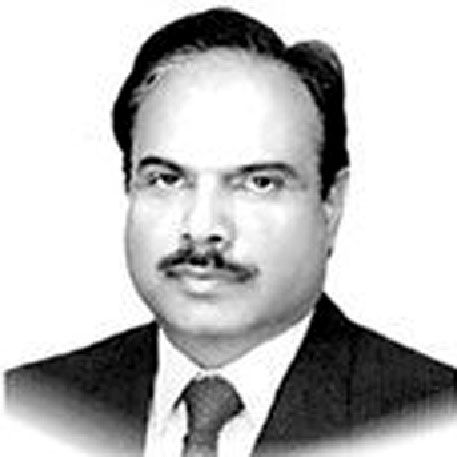Kanwar Muhammad Dilshad
UZBEKISTAN is a republic with a strong
presidential system in which the executive
branch exercises wide authority relative to Parliament (Oliy Majlis). Parliament comprises two chambers – an indirectly elected 100-member Senate and a lower chamber with 150 members. The members of the lower chamber are elected from single-mandate majoritarian districts. If no candidate receives a majority of the votes cast, a second round between the two leading candidates will be held. he elections will be held under a substantially revised legal framework. The Election Code, adopted in February 2019, unifies five different laws. It addresses certain previous ODIHR recommendations, including the removal of provisions for reserved seats in Parliament previously filled through an indirect election, removal of undue restrictions on voting rights based on ongoing criminal proceedings or a conviction, introduction of a maximum permissible deviation in the size of electoral districts, revision of candidate support signature requirements and allowing voters to sign in support of more than one prospective electoral contestant. However, the Election Code does not address a number of long-standing recommendations, many of which pertain to restrictions on or an absence of guarantees of fundamental freedoms.
The parliamentary elections have been administered by a three-tiered election administration, including the CEC, 150 District Election Commissions (DECs) and over 9,000 Precinct Election Commissions (PECs). The CEC has planned an extensive cascade training for all DEC and PEC members throughout the country and a comprehensive voter awareness campaign on various aspects of the electoral process. Most Office for Democratic Institutions and Human Rights NAM interlocutors acknowledged that proxy voting on behalf of several voters was still practised throughout the country, especially in rural areas, and welcomed the efforts to tackle this phenomenon. Special measures were planned to facilitate independent participation and further protection of electoral rights of voters with disabilities. Voter registration is passive. For the first time, the voter lists had compiled based on the Single Electronic Voter Register, which was extracted from the Information System on Electoral Process Management, based on a compilation of information from various government authorities. The ODIHR NAM interlocutors expressed confidence that the SEVR became fully operational for the upcoming elections, although some noted concerns that it may not be sufficiently accurate due to the shortage of time, the complexity of interaction of the various bodies involved in the process and the large volume of information to be processed. Candidates can only be put forward by registered political parties. Independent candidacies are not provided for by the law, despite a previous ODIHR recommendation. Positively, the new Election Code permits a voter to sign in support of more than one political party seeking to contest an election, in line with international good practice and a previous ODIHR recommendation. The election campaign commenced upon completion of candidate registration and ends one day prior to the election. The law contains provisions focused on ensuring equal campaign opportunities for all contestants, including in terms of holding meetings and access to the media. Political parties informed the ODIHR NAM that they expect the campaign to be vibrant with candidates using a combination of campaign strategies, including the use of social media. All election related expenses are funded by the state. The amount of state funding allocated to a political party depends on its number of registered candidates.
The Constitution provides for freedom of expression, while the Election Code and relevant CEC regulations govern the media’s conduct throughout the electoral period. The media are held accountable for the trustworthiness of the disseminated information and defamation remains criminalized. Online sources are increasingly used as a source of political information and strive to challenge the traditional approaches to covering domestic events. Access to multiple internet-based media had been recently restored after more than ten years of intermittent blocking. The legal framework requires equal allocation of time and space among the candidates within the media. All interlocutors met with during the ODIHR NAM underscored the need for an ODIHR election observation activity for the parliamentary elections noting that an external assessment would be of added value. Representatives of official bodies emphasized that the electoral process would be transparent and that any recommendations for potential improvement of the process would be welcome. In considering an observation activity, the ODIHR NAM has taken into account the various findings outlined in this report. — To be continued.
—The writer is former Federal Secretary Election Commission of Pakistan and currently Chairman National Democratic Foundation.









